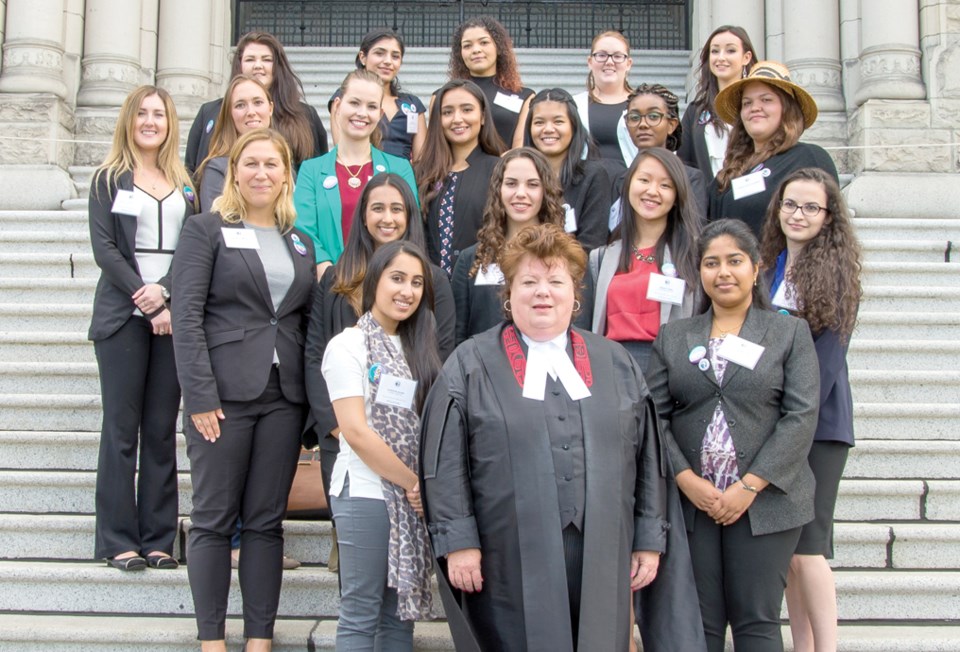Thi Uyen Thi Tran knows that if she lived in a different decade she wouldn’t be allowed to vote, let alone get to sit in the B.C. Legislature.
Yet Tran, a 20-year-old North Vancouver university student, took a seat in B.C.’s top political chamber on Monday, as part of a program designed to get more young women involved in politics.
Tran was among about 20 young women aged 18 to 23 who sat in the legislature Oct. 3 as part of a special event, then took part in a discussion with female politicians about why so few women are involved in political life and what can be done to change that.
The event Monday in Victoria was held in recognition of October as women’s history month. It’s part of a larger campaign called Daughters of the Vote being organized by the group Equal Voice, which is gearing up to celebrate 100 years of women’s right to vote in 2017 while promoting a greater involvement of women in politics.
Although they make up roughly half the population, women hold only 37 per cent of seats in the B.C. legislature. At the federal level, that drops to 26 per cent.
Tran said she hopes to be among those advocating for change.
“We’re more than competent,” she said. “There’s no reason why we shouldn’t have our place and a say in what goes on in the country.”
Tran grew up in a household where political discussions were encouraged. Her parents fled Vietnam to France as refugees during the Vietnam War in 1975.
Tran was born in France and lived there until her family moved to the Lower Mainland when she was 10. She went to high school in West Vancouver and now lives in North Vancouver with her family while she attends Simon Fraser University, studying political science and French.
As a family who had been forced to leave their home country for political reasons, politics was always “a topic of discussion” while growing up, said Tran.
“I come from a really political family. My mom always said it was important to stay involved and not blindly follow politics. It had to be active.”
Tran said she’s taken part in youth model parliaments before and worked as a parliamentary tour guide in Ottawa as a summer job. “It was just a great job being in the centre of everything.”
On Monday, the group talked about some of the obstacles women face in taking on bigger political roles.
When it comes to winning nominations and elections, “Women don’t necessarily have the network built already,” she said. “It involves the support of men as well.”
As well, many women don’t feel confident in their abilities or feel they are going to be taken seriously, said Tran. Having more programs that would encourage girls in leadership roles would help, she said.
“It does start very early. It’s little girls thinking it’s not a girl’s job to be involved in politics or a leadership position.”
Seeing women in those roles – whether it’s the premier’s office or the boardroom – is important, she said. “It’s encouraging to see women in high positions.”
On International Women’s Day 2017, the Daughters of the Vote participants will sit in Canada’s House of Commons, representing 338 federal ridings.
Women first got the right to vote federally in 1917. People of Asian decent couldn’t vote until 1948. First Nations were excludedfrom voting until 1960.



